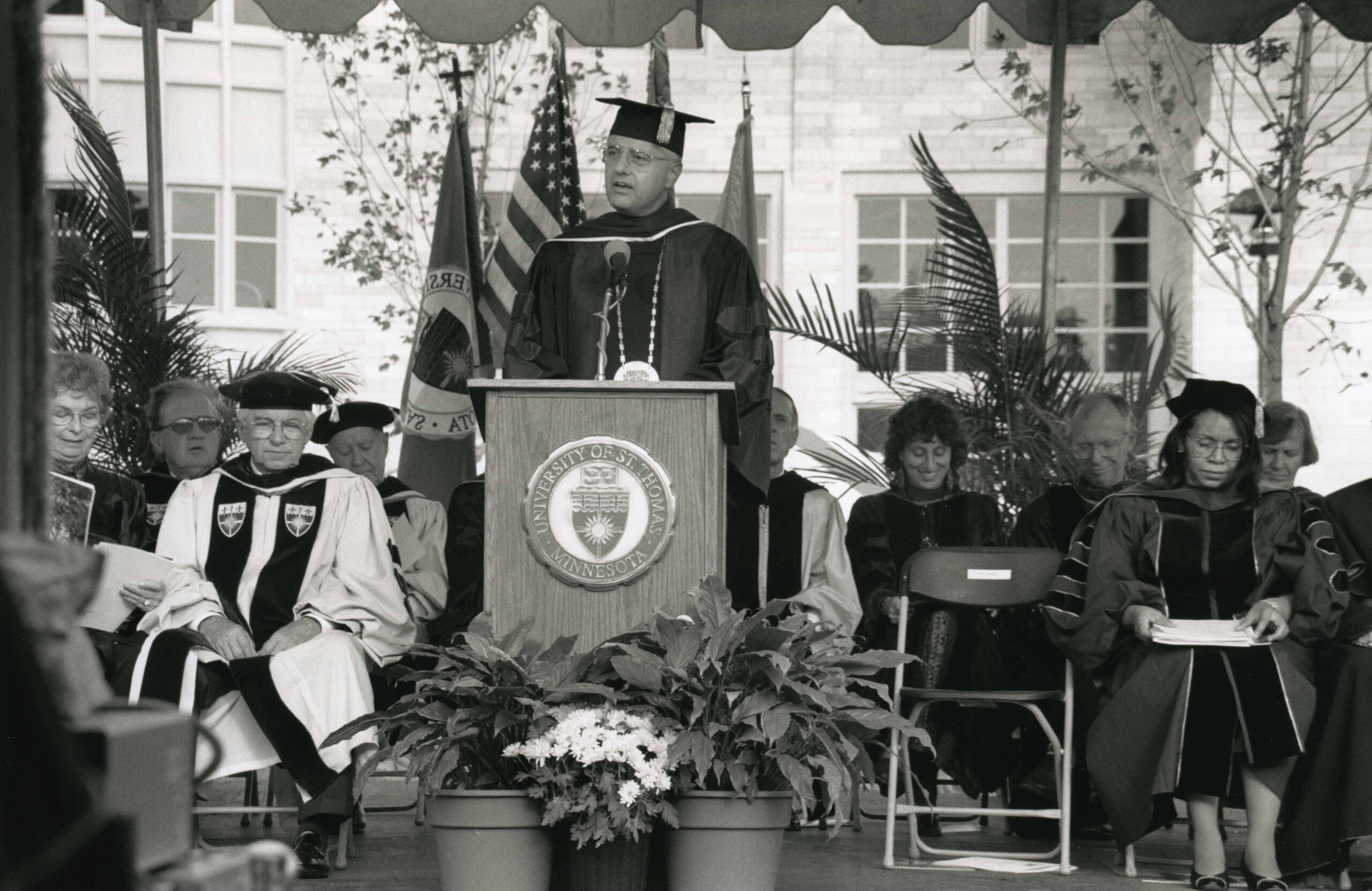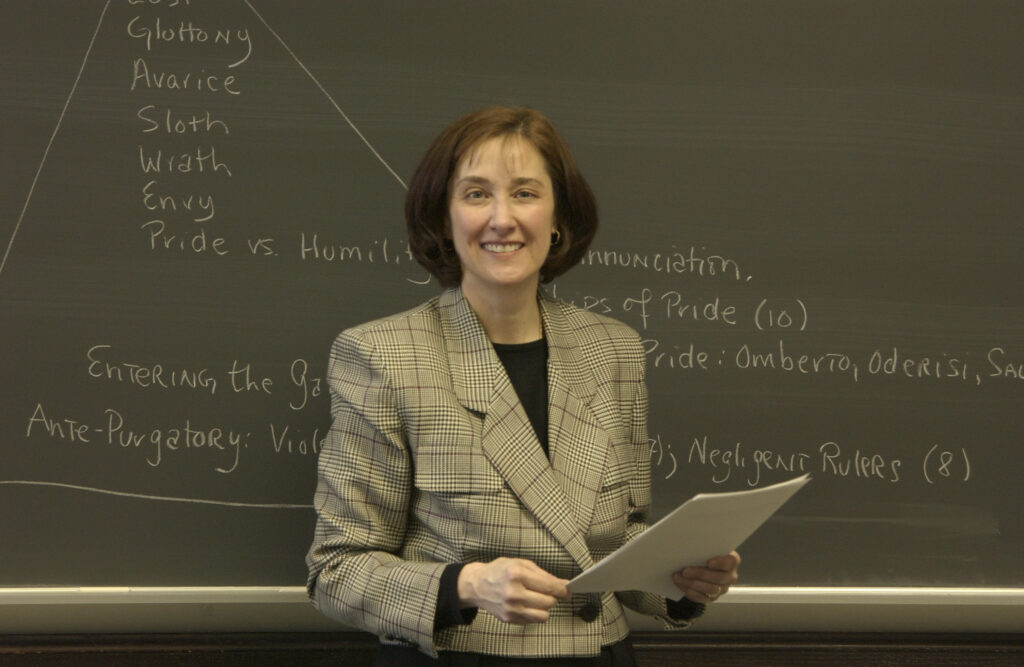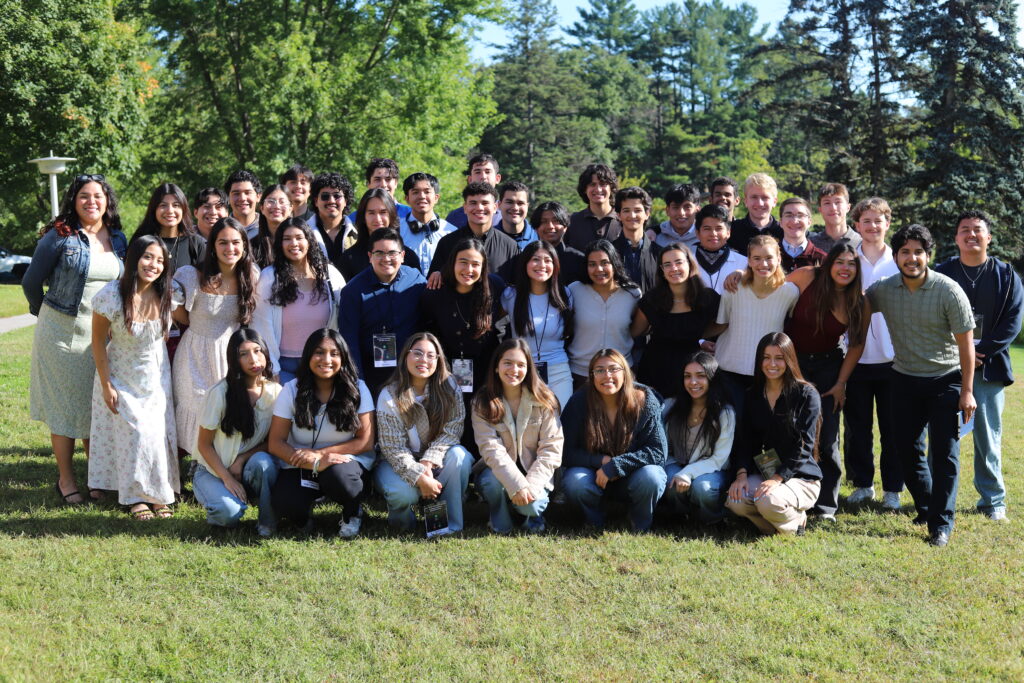When attending official St. Thomas functions such as commencement ceremonies and building dedications, one often will find the speaker standing behind a podium emblazoned by the university’s official seal. Have you ever wondered when the seal was created and what the symbols on it mean?
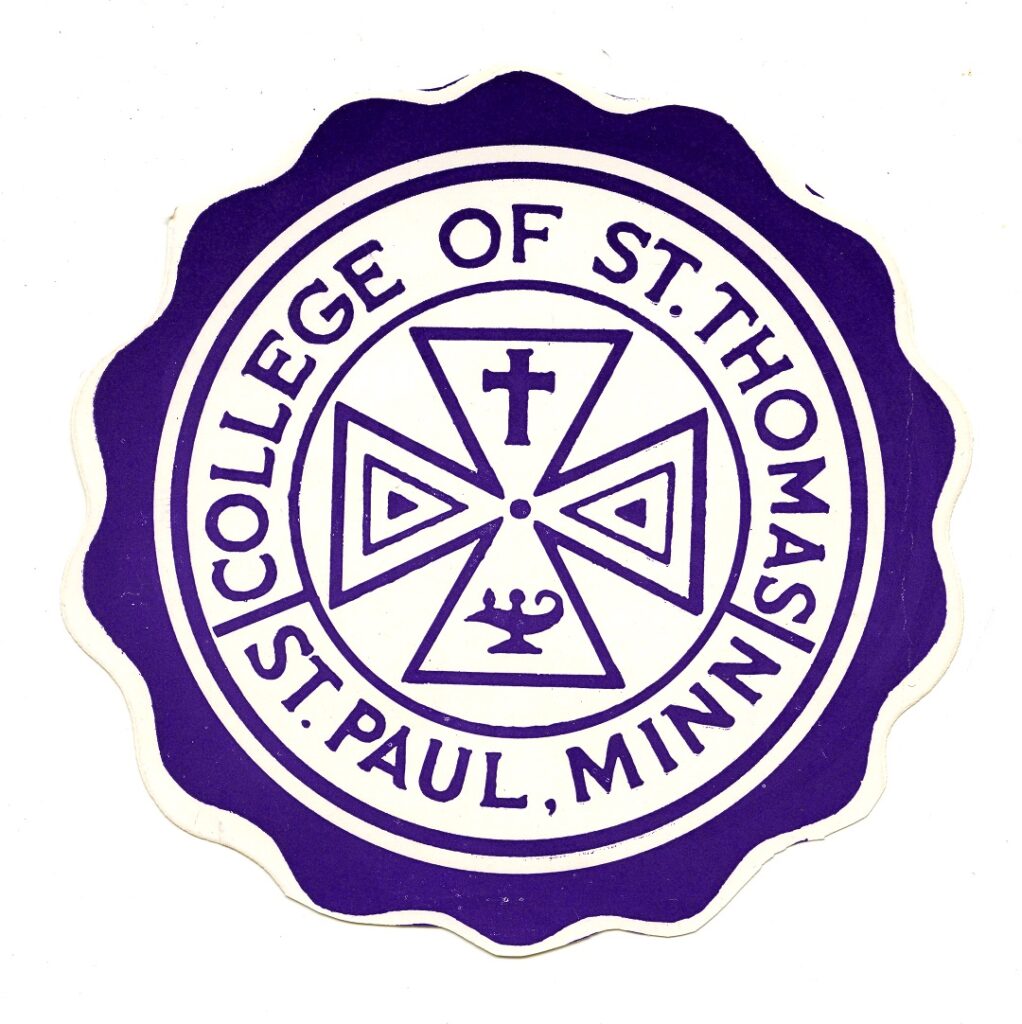
The first College of St. Thomas seal was adopted by the Board of Trustees on June 1, 1896. The minutes from the meeting described the seal as “bearing the motto, ‘College of St. Thomas,’ encircling a Maltese cross.” By 1949, the seal was changed to include symbols superimposed on the arms of the cross. These symbols included a lamp to signify learning, two triangles to stand for the Holy Trinity and a cross to symbolize Christianity.
The college seal was revised in 1958 to include the coat of arms of the school, encircled by the words “College of St. Thomas, St. Paul, Minn.” The coat of arms for St. Thomas was designed by Reverend William F. J. Ryan, a member of the Académie Internationale d’Heraldrique. It incorporated several symbols including:
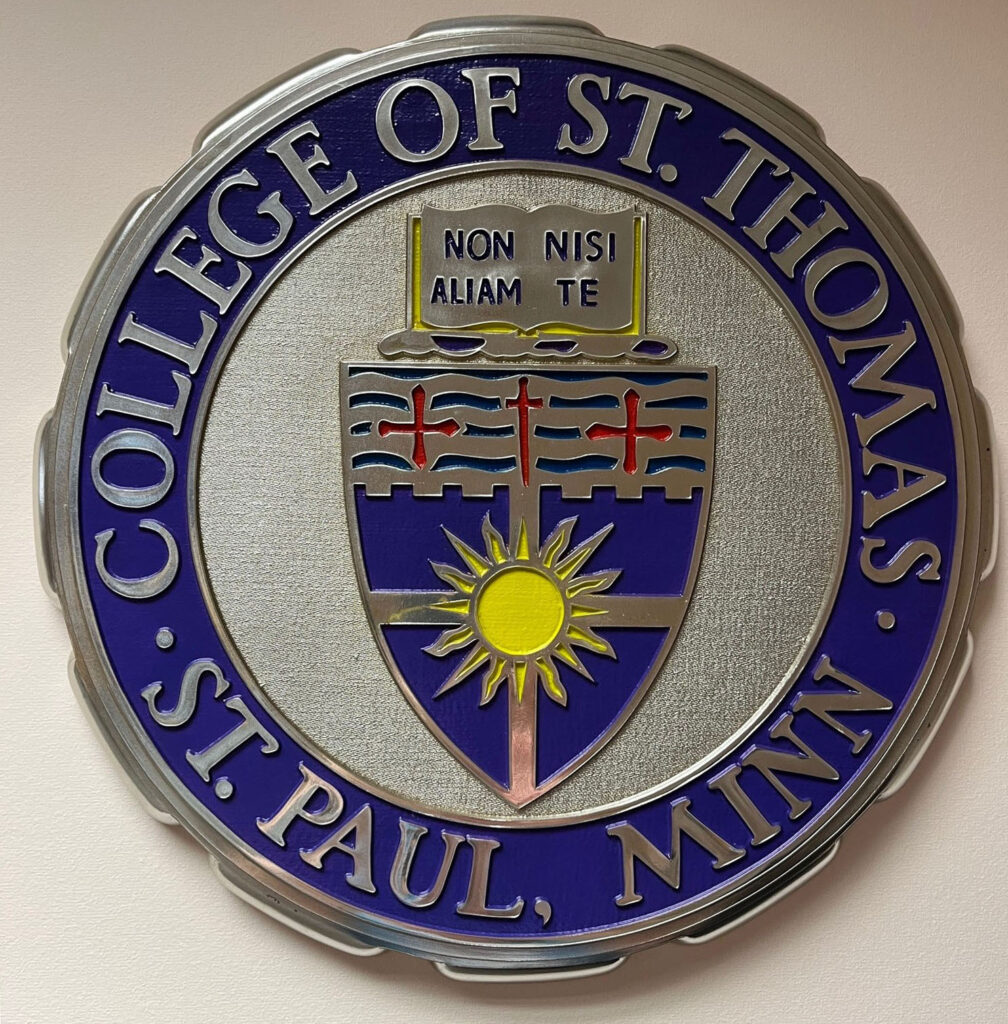
- A shield in the school colors of purple and gray, divided into quarters by a silver cross
- A rayonnant of the sun standing for the school’s patron, St. Thomas Aquinas
- Elements from the coat of arms of the Archdiocese of Saint Paul and Minneapolis including blue and silvery waves representing Minnesota (“sky-tinted water” in the Dakota language), a sword representing the archdiocese’s namesake St. Paul, and two crosses representing the Twin Cities
- An open book (the symbol of wisdom) with the words “Non Aliam Nisi Te” written on its pages. The phrase refers to story about a vision seen by St. Thomas Aquinas. Standing at the foot of the cross, Jesus says to him, “You have written well of me. What would you like as your reward?” St. Thomas answers him with the phrase, “Non Aliam Nisi Te” or “None other than you, (Lord).”
When the school changed its name to the University of St. Thomas in 1990, the seal was once again revised. The words encircling the coat of arms were changed to “University of St. Thomas, Minnesota” to reflect the evolution of the school’s size and scope.
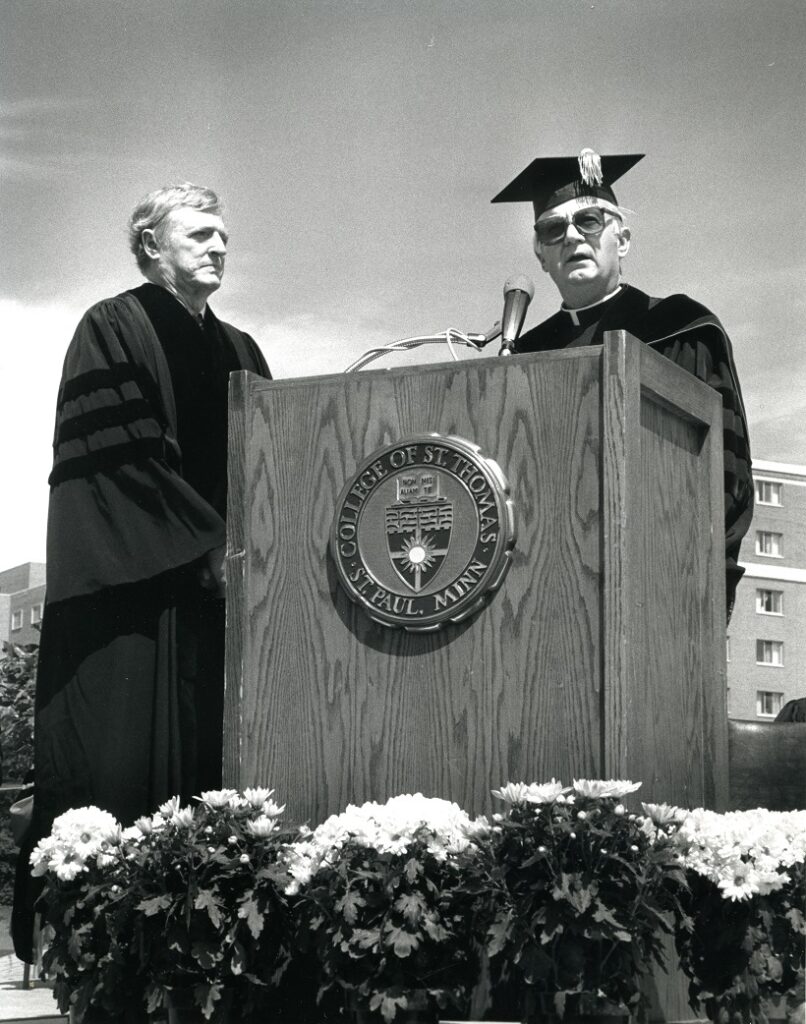
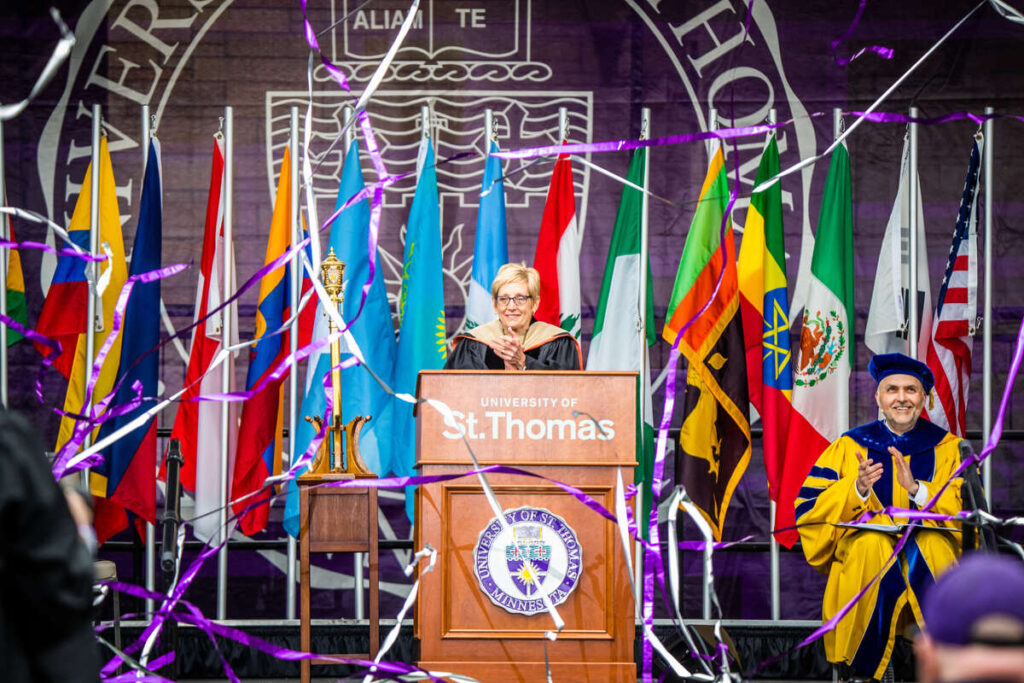
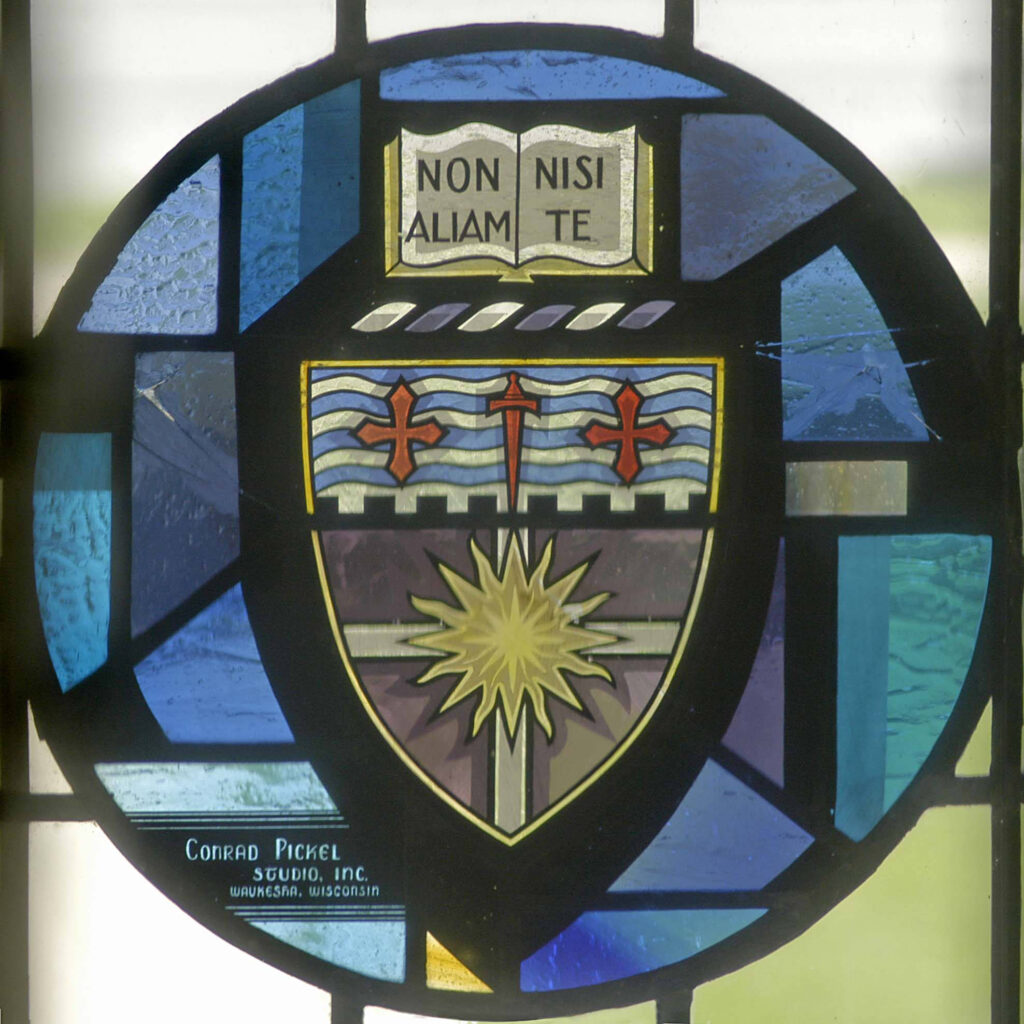
More Tales from the Archives
-
Tales from the Archives: Dowling and Brady Halls
People & Culture -
Tales from the Archives: Refugee Professors from Nazi Germany
People & Culture -
-
Tales from the Archives: Summit Classroom Building
University News
